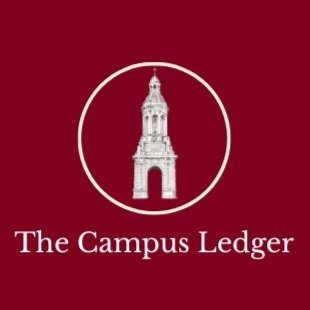Catholic by Tradition, Secular by Practice: What Do Students Actually Believe Today?
Ireland’s long-standing association with Catholicism is evident in nearly every public institution, from school patronage to state ceremonies. But when you look at the beliefs and practices of university students today, a very different story starts to emerge. While the country’s educational landscape is still shaped by Catholic traditions, the daily lives and values of students often diverge sharply from the faith their institutions were built upon. Young people are still inheriting a Catholic legacy, but very few are living by it.
According to a 2022 report by the Higher Education Authority, just 23 percent of Irish university students describe themselves as ‘actively religious.’ The majority now identify as either ‘non-practising’ or ‘non-religious.’ This mirrors broader trends in Irish society, where census data shows a steady rise in those selecting ‘no religion.’ Among those under 25, the shift away from faith is particularly pronounced. Still, most students arrive at college having attended schools with a religious ethos and continue to study in universities shaped by Catholic heritage.
This creates a kind of cultural dissonance. For many students, religion functions more as a backdrop than a belief system. They may have been baptised and confirmed, and they might even remember lines from prayers or hymns, but these markers of faith no longer hold much weight in their day-to-day lives.
“I don’t think I know anyone my age who goes to Mass unless they’re home for a family event,” says Ciara, a third-year Trinity student. “But I still call myself Catholic. It’s more about where I’m from than what I believe.”
This sentiment is increasingly common. Religion is seen not so much as a personal conviction but as a cultural inheritance. Many students continue to engage with Catholic symbols and rituals in moments of transition or difficulty, even if they no longer believe in their theological content. Lighting a candle, attending a funeral Mass, or reciting a familiar prayer can provide comfort, but the underlying belief may be absent.
Even so, the decline of formal religious practice does not necessarily mean a lack of interest in deeper questions. Many students still seek meaning, connection, and community. They simply do so through different channels. For some, philosophy, literature, and politics have taken the place of religious frameworks. Others find a sense of purpose in climate activism, mental health advocacy, or movements for social justice. Some turn toward practices like meditation or yoga. The point is not that belief has disappeared but that it has changed form.
In this respect, Irish students are not hostile to religion. Rather, they are moving beyond it. They are less likely to rebel against faith than to quietly walk away from it. The Catholic Church, for its part, has struggled to respond to this shift. Although it remains present in many institutional settings, its moral authority has declined significantly. Scandals surrounding abuse, cover-ups, and a lack of accountability have deepened the disconnect.
For many young people, the Church is seen as outdated, overly hierarchical, and slow to reflect contemporary values. While some dioceses and parishes are experimenting with youth outreach and more inclusive language, these efforts often come too late or ring hollow. The institutional Church may still speak, but far fewer students are listening.
At the same time, university structures have not fully replaced the sense of moral or spiritual grounding that religion once provided. Chaplaincy services exist on most campuses, but they have become increasingly pastoral and interfaith, focused more on well-being than worship. Religion departments continue to study belief systems, but often from an academic distance. The idea of a university as a place of spiritual formation has quietly faded. Students are left to navigate big questions largely on their own.
Some do find meaning in other religious traditions. Islam, Orthodox Christianity, and Evangelical Protestantism have all grown in presence due to international student populations and changing demographics. Others are drawn to forms of spirituality that emphasise personal experience over dogma. A small but growing number explore indigenous Irish traditions, such as pre-Christian mythology and ritual, seeking a connection to place rather than doctrine.
Still, for the vast majority, the dominant worldview is a kind of relaxed secularism. Students value kindness, fairness, and personal freedom. They are curious about questions of meaning, but they tend to be suspicious of absolute answers. They are more likely to share a podcast on mindfulness than attend a sermon, and more likely to advocate for equality than speak in religious terms about morality.
This shift raises a broader cultural question. If traditional religion no longer provides the ethical language or sense of belonging it once did, what will replace it? Universities could play a greater role here, not by preaching, but by fostering spaces for dialogue, reflection, and moral engagement. In a society that is moving rapidly away from inherited religion, the search for values is as pressing as ever.
“Sometimes I wish I had something to believe in,” explains Ciara. “Not because I think I’m missing the truth, but because belief seems to give people structure. I still light candles in churches sometimes. I don’t think I believe in anything, but I still do it.”
That quiet blend of habit, nostalgia, and uncertainty may capture the mood of a generation. They are not angry at religion. They are simply walking another way. Catholic by tradition, secular by practice, and still asking the same questions humanity always has — only now, on their own terms.
